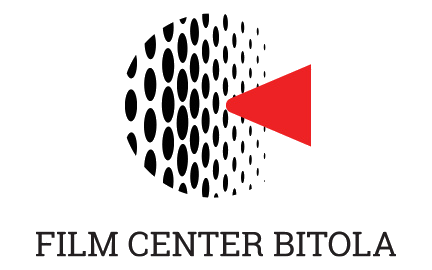Speakers
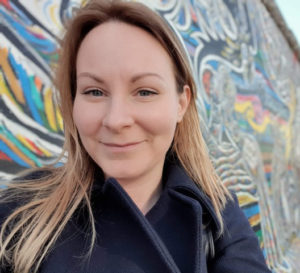
Natalie Moore, Senior Film Officer, Bristol City Council
Natalie manages Bristol Film Office and is the project lead for the Bristol City of Film. She oversees major filming in the city and has secured many major feature films and drama series to Bristol during the 12 years she has managed the service. Natalie began her career coordinating events at various Bristol film festivals, moving into film locations logistics and coordination before taking on the management of Bristol Film Office. Natalie coordinated Bristol’s bid to become UNESCO City of Film and was appointed project manager in 2018. Since receiving the designation, Natalie has led an ambitious work programme, including securing a Film for Literacy programme to the city (a first for Bristol’s primary literacy curriculum), increasing access to free community film screenings across Bristol and developing closer working relationships with African cities through the UNESCO designation. Natalie sits on the Bristol City of Film Steering Group, Film Offices UK working group and the Into Film, Film for Learning Steering Group.
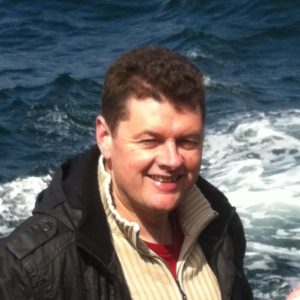
Alan Duggan, manager of Galway Film Centre, director of the UNESCO City of Film office in Galway
Alan is also the GFC executive liaison with the WRAP Fund. Alan has a record of accomplishment as an entrepreneur in the games industry, most recently as CEO of Tribal City Interactive. He was also a board member of Imirt, the Irish Game Makers Association. He has developed, and successfully brought to market, a number of games on various platforms. He has significant experience in the funding of games development, including venture capital, private investment, and Creative Europe funding. Alan is also currently fulfilling the role of Managing Director of Comhoibriú providing overall executive management and direction for the CREW project.
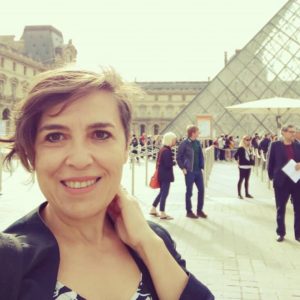
Maria Coletti, distributor and programmer at Cultural Distribution Office at CSC – National Film Archive (Centro Sperimentale di Cinematografia-Cineteca Nazionale)
She received the Filippo Sacchi Award for her graduation thesis (Rome University “La Sapienza”). She obtained a doctorate in film studies at Roma Tre University with a research on the image of women in Sub-Saharan Cinemas and got a postdoctoral fellowship with a project on colonial Italian cinema, both published. Beyond some essays and articles, she published the following monographs: Di diaspro e di corallo – L’immagine della donna nel cinema dell’Africa nera francofona (2001), Souleymane Cissé – Con gli occhi dell’eternità (2011) and Carmelo Bene – Il cinema, oppure no (2012). She created the film festival Panafricana – Le mille Afriche del cinema a Roma (2002-07) and co-directs the website Cinemafrica – Africa e diaspore nel cinema (cinemafrica.org). As a programmer for Cineteca Nazionale, she organized several retrospectives on issues as Women’s Cinema, History, and Cinema, Migration Cinema.
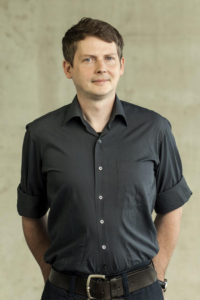
Piotr Kulesza, historian, art historian, museum custodian. Head of the Exhibitions and Collections Department, National Center for Film Culture, Poland
Co-author and curator of such exhibitions as Pola Negri, Cinema Legend; Roman Polański, Actor, Director; Poland, Europe, The World; The Faces of Agnieszka Holland; The Miracle of Photography Brought to Life; Relics of Film Technology, From Negative to Copy. Coordinator of temporary exhibitions dedicated to the history of Polish cinematography in Canada, Brazil, Great Britain, Iceland, Hungary, Slovakia, Germany, Serbia, and Lithuania.
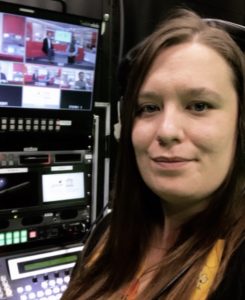
Rachel Bottomley, production coordinator at Bradford UNESCO City of Film
Rachel predominately works alongside David Wilson in the Bradford Film Office. She is a longstanding member of the Bradford City of Film team and leads on engagement, working on film projects across Bradford’s diverse communities. Rachel works with the local community cinemas, has led film-related workshops throughout our 10th anniversary year and helps to produce films/ graphics for Bradford UNESCO City of Film. Rachel has a Master’s degree in Media Studies from the University of Bradford, where she devolved her filmmaking skills. Other than working in Bradford UNESCO City of Film, Rachel also works in a local primary school, where she teaches film to year 5 & 6 as part of their enrichment activities. She also works as a freelancer in various roles, such as production coordinator, camera operator, and editor, and is currently writing a book for children on how to make films. Rachel has a Master’s degree in Media Studies from the University of Bradford, where she devolved her filmmaking skills. Other than working in Bradford UNESCO City of Film, Rachel also works in a local primary school, where she teaches film to year 5 & 6 as part of their enrichment activities. She also works as a freelancer in various roles, such as production coordinator, camera operator, and editor, and is currently writing a book for children on how to make films.
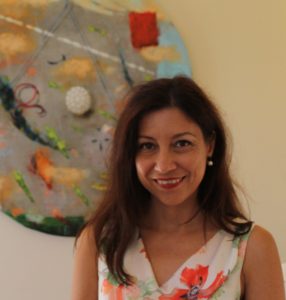
Bilyana Genova, Director of the Department of Culture of Sofia Municipality
Bilyana was born in 1971 in Sofia. She graduated from the Sofia University “St. Kliment Ohridski”. She specializes in the history of culture at the State University of Milan. From 1995 to 2016 is a gallery artist at the Natali Family Gallery, co-organizer of the Autumn Salon of Bulgarian Art Vadenoyen, the Netherlands and five exhibitions of Bulgarian art in Venice.
From 2016 she is a Director of the Culture Directorate in Sofia Municipality and coordinator of the Municipal Program “Culture”.
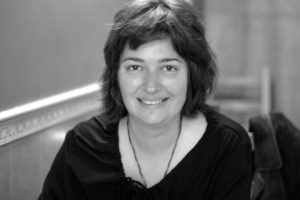
Dr. Diana Andreeva – Popyordanova, director of the Observatory of Cultural Economics
She earned a Ph.D. in Cultural Economics from the University of National and World Economics – UNWE. Since 2009, she teaches “Marketing and advertising” and “Financing of performing arts” at the National Academy of Theatre and Film Arts. In 2014, she became a permanent assistant professor at the University of National and World Economy in the subjects: “Audio-visual Policy”, “Innovation media”, “Investment choice in the media and cultural industries”, “Economics of cultural industries,” Political Economy of the media”. Diana Andreeva has published numerous articles in recent years and has participated in various Bulgarian and international research teams in the field of cultural economics and financing. Since 2010, she is co-editor of the Compendium of Cultural Policies of the Council of Europe, (together with Assoc. Prof. BilyanaTomova). Andreeva is a member of the Film Commission at Sofia Municipality. She volunteers for 17 international organizations and projects with more than 10 countries.

Arthur Le Gall, director at KEA European Affairs, an international policy design research center specialized in culture and creative industry as well as sport
He is responsible for coordinating KEA’s research team and supervising studies, reports, and projects. He also oversees sport-related activities. He is specialized in policies for the sport, audiovisual, cultural and creative sectors. He designs methodologies to assess the contribution of the cultural and audiovisual sectors to the wider society and economy. Arthur engineers support programs and policies for the cultural and creative sectors to nurture arts, culture, and creativity across territories. Arthur also delivers strategic advice to local authorities on the role of sport, culture and creative industries for local and regional development. He is the author or co-author of several research pieces on culture and creativity in Europe, including ‘Mapping the creative value chains: A study on the economy of culture in the digital age’ (DG EAC, 2017), a ‘Study on the promotion of European works in Audiovisual Media Services (DG CONNECT, 2017) or the longitudinal evaluation of Mons European Capital of Culture 2015 (Mons 2015 Foundation, 2012-2016).
Arthur’s experience includes managing some key EU-funded projects, one looking into culture investment and strategic initiatives in 150 cities and regions across Europe (“Culture for cities and regions”, 2014-2017), as well as another on developing an international platform for young creative entrepreneurs (“Creative Tracks”, 2015-2017). He holds an MA from Sciences Po Lille (FR) in European Affairs and obtained a BA in Politics & International Relations from Kent University (UK). Arthur is also the co-founder of b.creative, a global network for cultural & creative entrepreneurs.
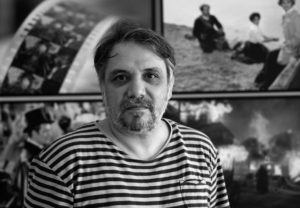
Vladimir Angelov, Director of Cinematheque of North Macedonia
Vladmir is a filmologist and graduated producer. After graduating the Faculty of Drama Arts in 1992, and a short period of working as a producer in Vardar film, in 1995 he found a place in Cinematheque of Macedonia, where he still works. In the beginning, he works on recognizing and restoration of the 1948 – 1953 film fond. After completing an elaborate, these fonds was restored and film prints were made. For 11 years he was responsible for the program of the Cinematheque and as such he was in charge of many different presentations of foreign cinematography and filmmakers. At 2017 he is appointed as acting director of Cinematheque, and in 2018 as a director.
Throughout his carrier he collaborates with IFFC Manaki Brothers, Skopje Film Festival, in 2016 he was a member of the jury of Watch Out film festival, he is a member of the jury of First Film First project… Since 1995 he is collaborating with Kinopis where he is publishing all kinds of texts (more than 30) from theory and critics to festival review. He has also collaborated in different projects like Photography and Cinema in the Ground of Macedonia (Segment of feature films in Macedonia, published by Macedonian Academy of Science), Trajce Popov (published by Cinematheque)… As responsible for the film program in the cinema of the Cinematheque he also writes an editorial for the brochure that is published monthly.
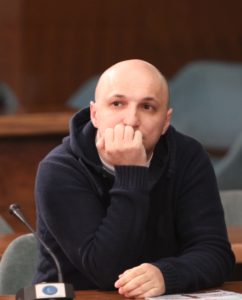
Petar Kotevski, founder and developer of KAMAi Media (kamaikamai.com) and founder of Macedonian Game Developers Association – MAGDA
Petar has been working in the game industry since 2000. He worked on games such as Far Cry (PC), 50Cent: Bulletproof (PS2/XBOX), Halo 3 (XBOX360), Halo 3:ODST (XBOX360) and Halo:Reach (XBOX360), Destiny (All platforms). He has worked as a programmer, programming lead, designer and manager. His specialties are Code Architecture, Animation, AI and Gameplay. He is currently erasing the line between movies and video games with the title “Sonder.” developed by KAMAi MEDIA. KAMAi MEDIA is a small group of developers, consisting of veterans of game development as well as enthusiastic newcomers, established in 2011. They have since been working on developing technology that allows player-influenced non-linear narrative possible, as well as “sonder.” the product whose idea and design inspired the technology. Sonder. is an interactive narrative Third-Person Action-Adventure game where every choice the player makes has a long term effect on the outcome of the game. The game can be played from the perspective of any character and features a unique rewind mechanic that allows players to make different choices and experiment with the results.
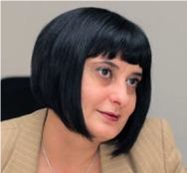
Mimi Gjorgoska-Ilievska, M.A., Advisor for Film, Library and Phonograph Heritage,
Directorate for Protection of Cultural Heritage
Mimi is a professional film archivist and film researcher. She has been actively involved in the film industry and in the field of audiovisual heritage preservation for more than 20 years. After her initial employment in the Cinematheque of Macedonia and working as a trainee and expert in the Secretariat of the intergovernmental organization Audiovisual Eureka in Brussels, she has served for eight years as a Director of the National Film Archive – Cinematheque of Macedonia and as an Executive Director of the Macedonian Film Agency. From 2011 until 2017 she was a national representative of Macedonia in Eurimages (Council of Europe’s European Cinema Support Fund) and was also an active and first Macedonian member of the Executive Committee of FIAF (International Federation of Film Archives) and Executive Committee of ACE (Association of European Film Archives). Through her career she has been focused on developing the Macedonian cinematography, protecting the national film heritage and the strengthening and developing of international relations, thus promoting the country on a global level. She is the author, co-author, and editor of numerous publications and articles on film history and theory, curatorship, film and literature relations and protection of audiovisual heritage, and frequently receives invitations to speak and present at film festivals, conferences, and symposia and to lecture in educational establishments across Balkans and in Europe. She has also been elected Associate professor of Audiovisual Archiving at Faculty for Dramatic Arts in Skopje. She is a member of the European Film Academy, recipient of numerous awards at home and abroad.
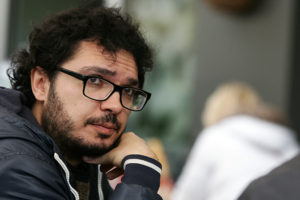
Sasha Stanishik, director, manager, and professor at the Department of Film and Digital Media of the University of Audiovisual Arts EFTA Skopje
Sasha was born in 1979 in Prishtina. He graduated in comparative and world literature in the Faculty of Philology as well as graduating as a film director at the Faculty of Dramatic Arts, both in Skopje where he also received a masters degree in film and TV directing. His research field of interest is narrative forms of visual expression (video games, VR …) arising from new digital technologies as well as new alternative ways and platforms for distribution of content.
He is the founder of the production and distribution company CutAway which deals with pre-production, production of films and distribution of content. The company is a pioneer in the development of new distribution models in this region. The company developed and launched Seecinema.net – a database of all films, festivals and film professionals from 13 countries of Southeastern Europe including Social network and news aggregator and developed and launched the first regional VOD platform Cinesquare.net available in 13 countries.
Sasha has participated in several seminars and workshops dedicated to new ways of production and distribution of content. He is the author of several short films and TV formats.

Marija Dimova, Macedonian Association for Game Development MAGDA-Bitola
Marija was born in Bitola in 1986, has several years of experience in the creative industries. She becomes a part of the Macedonian Association for Game Development in 2018, engaged in building its institutional capacity and growth into leading organization for promotion and strengthening of the game development industry in Macedonia. Her previous work experience as project manager and developer includes working with the Macedonian Science Society, Gauss Institute, Museum of Bitola, in projects for urban culture, smart cities, energy innovation, civic participation in urbanization, as well as several film and music festivals in Macedonia and France.
